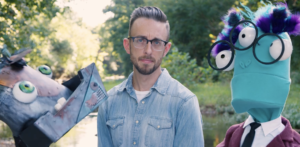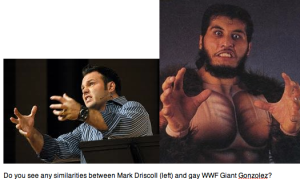
For the last 10 years in a row, we’ve gone to Camp Swatara to…almost rough it as a family.
We just got back yesterday afternoon and began the de-camping process. 6 loads of laundry and putting things away for 3 hours. It’s more tiring than camping, and camping includes foraging for firewood to sustain your life.
For the first time, I didn’t take a single picture of our time away. (The photo above is from the camp website. It’s nondescript enough to resemble us.) It seems strange that I didn’t take any now that it’s done.
It’s an interruption to take photos sometimes, so honestly, I didn’t even think about it. My mind was chattering and I was more “in the moment”.
Later, off course, the photos come in handy to help you remember what happened. Right now, I think I remember something about killing 30 flies with the swatter and the surge of gratification that gave me–and something about S’mores.
My least favorite things about camping:
1. Too much humidity (Towels dry outside on the clothesline….never.)
2. Feeling covered in dirt and sweat 95% of the time
3. Feeling covered in sunscreen and bug spray over the layers of dirt and sweat
4. Bugs and all sort of biting and buzzing insects
5. Walking outdoors to use the indoor bathroom facilities
6. Thin mattresses that cause aches and pains
7. The hyper-vilgilengce about poison ivy and occasionally getting it.
(It all sounds like a dream-come-true, right?)
(some of) My most favorite things about camp
1. Having friends visit
2. The hospitality inherent in the camping community (sharing, chatting by the fire, friendly greetings as you walk around)
3. Family togetherness. Yes, it’s forced on you, but you can really start to enjoy it, usually.
4. The way things smell when the dew evaporates off the leaves in the morning.
5. How the day eases into the night and the darkness that comes to ease you into sleeping
6. Overcoming crisis together. Yes, it’s pretty awful at the time, but great memories and bonding come later.
7. Making fire and cooking with it, or using the firepit as a homing device. It’s hypnotic and primal and warm.
8. The refinement that happens when you realize what you truly need, compare to what you think you need. It turns out that you want things you don’t need.
What you really need: water, food, dry shelter and clothing, each other. What you think you need: a faster laptop.
In the end, you have kids that look forward very happily to the time away, and two parents (me and Tim, obviously) who are happy it’s part of our summertime, even though the whole process is challenging.
It’s actually the challenge that creates the satisfaction later, but you don’t know that unless you try it the whole way through.
If you aren’t psychologically ready to endure, you can get bitter or regretful (…um…so I’ve heard). Plus, it’s a dry camp, so there’s no wine to easy you into it.
The other thing is that intact families tend to camp together. I didn’t have this growing up and it’s a gift I give my children and myself now.
Yes, sometimes “split-up” families camp, too. But, mine didn’t.
Usually broken up families have a lot more scheduling issues and conflicts. Camping as an activity gets pushed to the side, unless you are very dedicated about it and keep it up.
And then there’s the Chatter of the Mind
And sometimes, though not this time, I get to hear less from the planning and inner monologue part of my “chattering mind”.
In general, this chatter may be telling you that you forgot ziplock bags at home or that, or that despite your efforts, you really aren’t worth much in the world, or that you should have cleaned out the vacuum filter more thoroughly, or that you made a mistake in explaining something, or that the people you were just talking to think poorly of you, or that you have to cook something that requires 14 steps… and how will be working out anyway, or the plans for the afternoon and where and how to apply sunscreen properly for it, or any number of things.
There isn’t much quiet in and about our minds, and not for very long.
It’s called thinking. It can be incessant. It’s not just me, right?
If you finally reach that place in time and space where the chatter dies down, it’s almost deafening, actually. At first.
It tends to happen, not on family camping trips, but when I retreat away from home and I go alone. After 2-3 hours of intensional quietness–dialing down everything things improve. But that’s only when I’m being disciplined about getting away and pushing every nuisance thought back, or submitting it to paper, each time one surfaces. If not, it can take days, and too often never happens at all.
And after you tamp down or divert each thought pelting your brain you realize you’ve been breathing all wrong for much too long. You haven’t been able to separate the planning from the enjoying and looking around. You’ve forgotten the things you love or you have not noticed the things you should.
It doesn’t happen all at once that the chatter starts bullying you, but it happens.
(To come to my next retreat trip, click here.)
The chatter is an adversary that comes in pretending to be helpful and careful, as if it has your best interests in mind. But really, it’s just making you weary by using up too much valuable “mental RAM”, like (foolishly) running windows on top of a Mac Operating System.
How’s your mental RAM these days, anyway? Up to snuff?
Can you remember the last time you didn’t experience “the chatter of your mind” for some length of time?
(If you’re thinking about that now, or much of anything, then now is not one of those times.)
And if settling it all down sounds too close to death, then it’s been too long.
I’d love to hear your thoughts on it.









